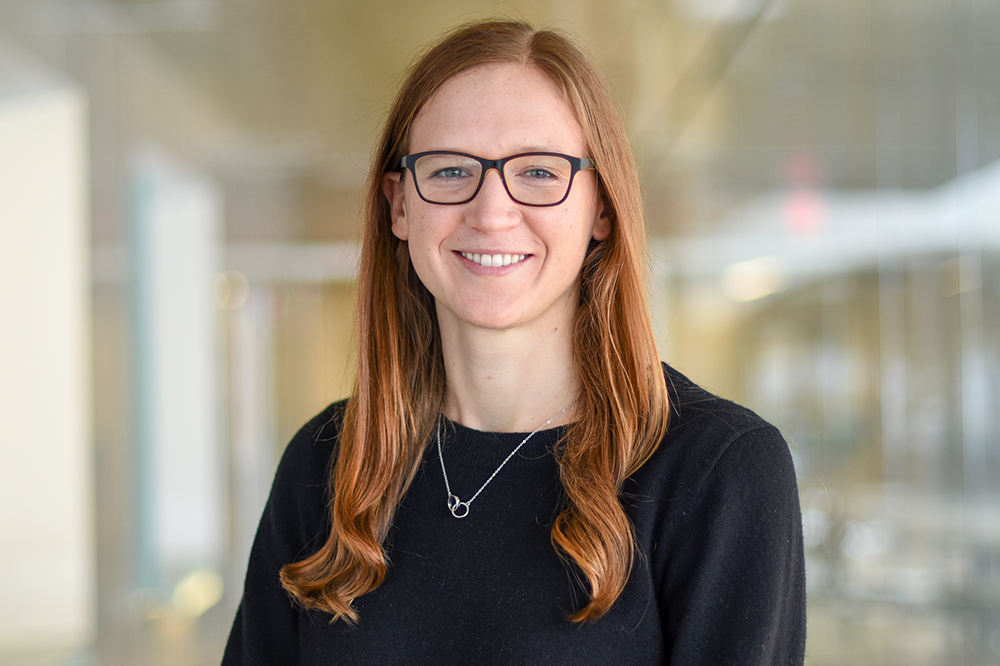Melissa Haskell receives NIH Fellowship for research to improve brain imaging
ECE postdoc Melissa Haskell works on improving functional magnetic resonance imaging so we can better measure and understand brain activity.

 Enlarge
Enlarge
Melissa Haskell, an ECE postdoctoral researcher, was awarded the Ruth L. Kirschstein Postdoctoral Individual National Research Service Award from the National Institutes of Health for her work improving functional magnetic resonance imaging (fMRI), which is used to measure and study brain activity.
Many factors can affect the quality of an fMRI scan. Movement can blur or distort the image, and breathing can cause an issue known as “off-resonance,” where the signal encoding model is disrupted. Haskell works to compensate for these factors, increasing the overall image quality.
“I’m trying to improve upon a technique that was invented here at University of Michigan by Shouchang Guo and Doug Noll called ‘oscillating steady state imaging’ fMRI,” Haskell says. “This is a new technique where you can get a much higher signal-to-noise (SNR) ratio than standard fMRI.”
The techniques proposed in her fellowship combine classical optimization and physics techniques with machine learning. Machine learning improves efficiency, but continuing to rely on traditional MRI physics ensures greater confidence in the final results.
“The hope would be that it could be used in all types of fMRI studies, but it’s probably going to be most relevant in applications where you need really high SNR, such as high-resolution visual system mapping,” Haskell says. “But if we can get it to work robustly, then it could potentially be used for studying lots of different diseases.”
The majority of Haskell’s work can be done remotely, as much of it is coding, so the COVID-19 pandemic has not severely impacted her research. Occasionally, she needs to conduct actual scans to test her methods and to acquire training data.
“If there’s anyone in the EECS department who wants a picture of their brain, don’t hesitate to email me,” Haskell says. “There’s no ionizing radiation for an fMRI, so there’s very low risk, unlike getting a CT scan.”
Haskell is advised by Jeff Fessler, the William L. Root Collegiate Professor of EECS, and Doug Noll, the Ann and Robert H. Lurie Professor of Biomedical Engineering. She is a member of the Functional MRI Laboratory. She earned her BA in Physics from Bowdoin College and her PhD in Biophysics from Harvard University.

 MENU
MENU 
